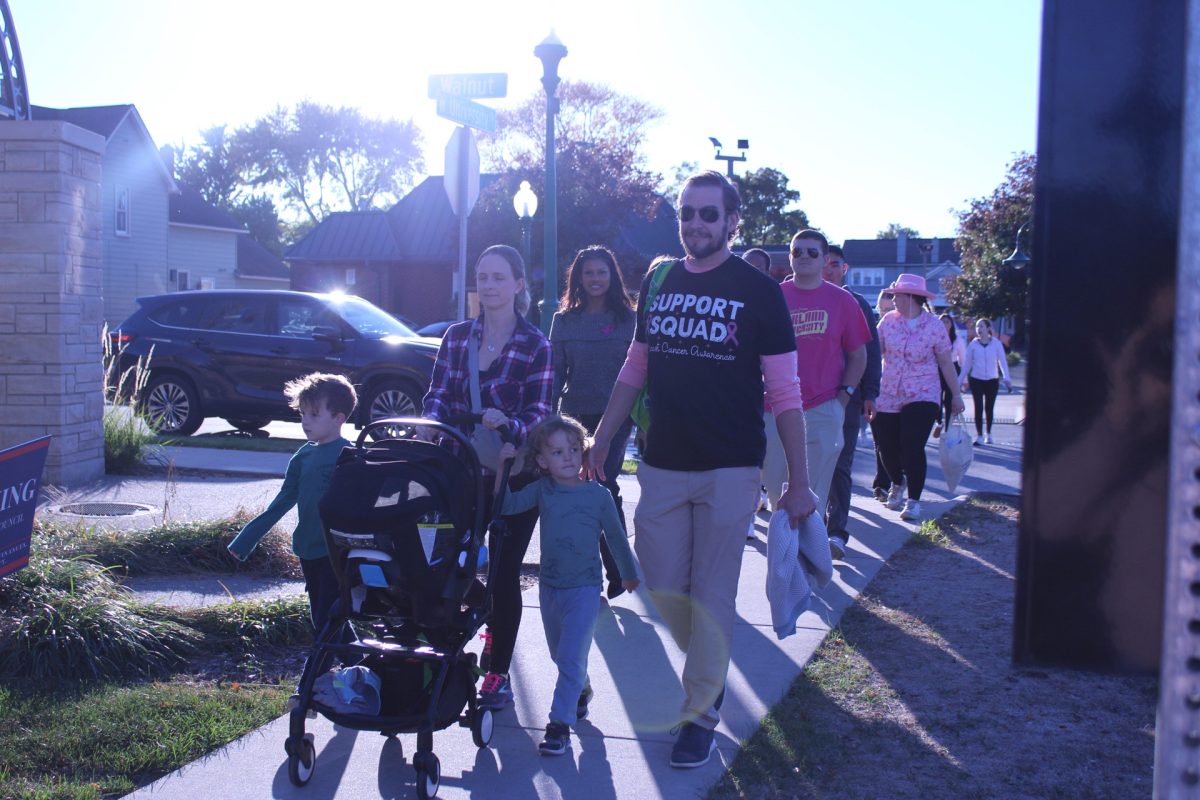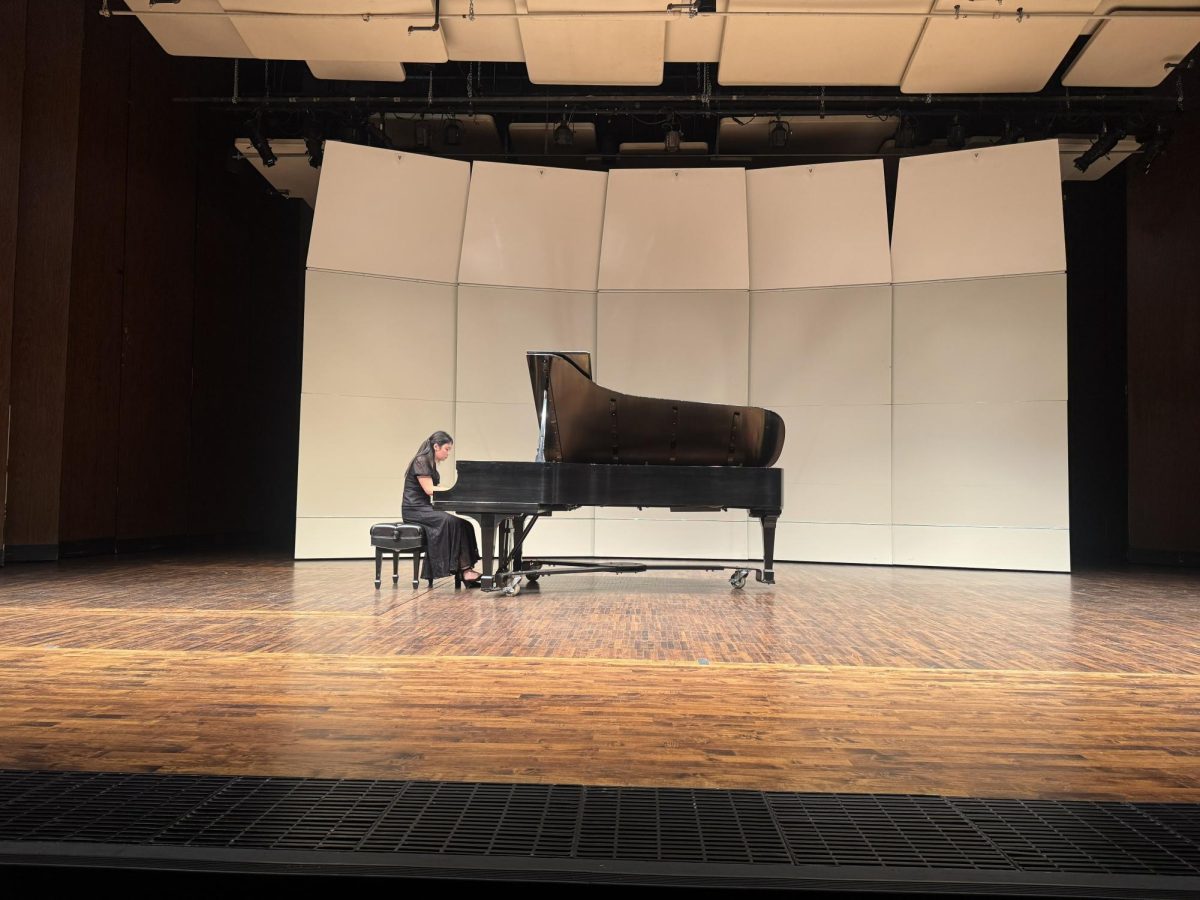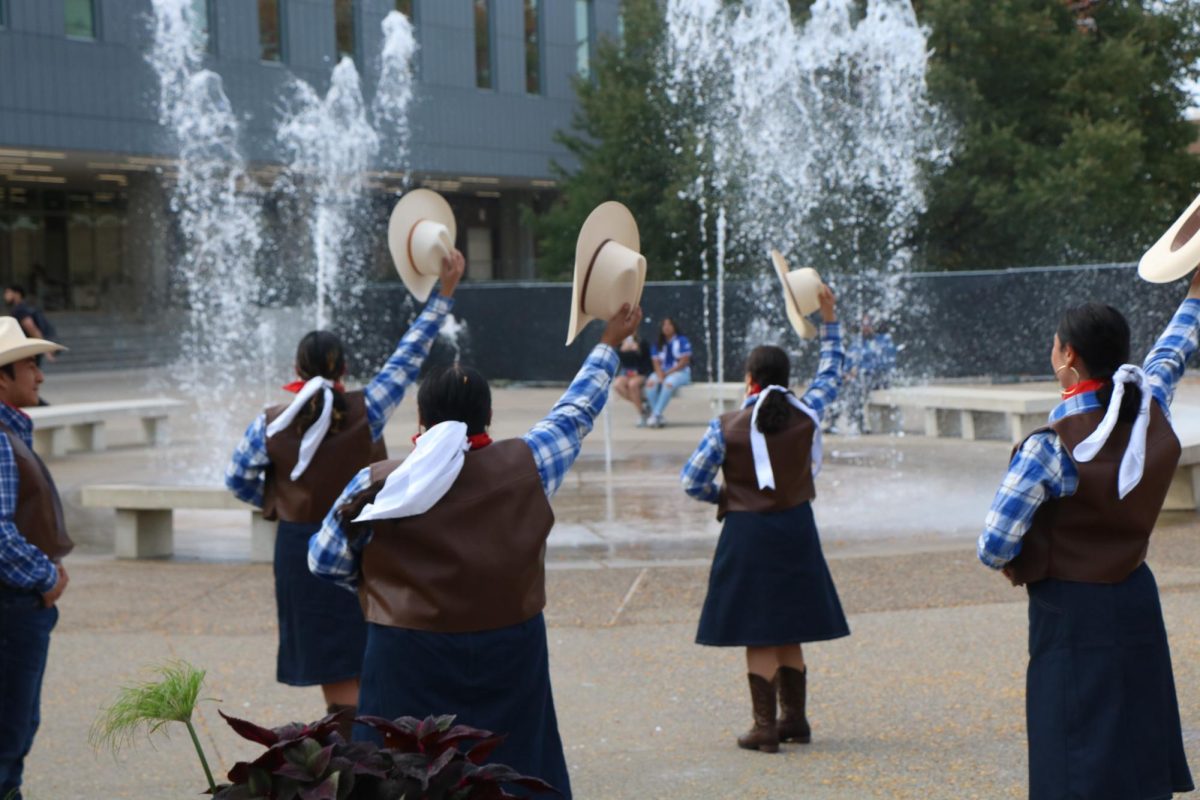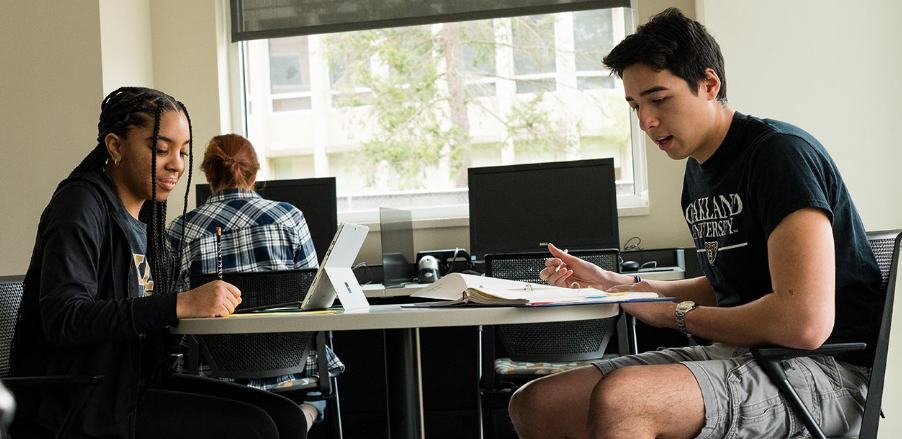October marks Breast Cancer Awareness Month and the Oakland University community participated in a one mile walk to help raise awareness of the disease and support education on its cause, prevention, diagnosis, treatment and cure.
On Oct. 16, Henry Ford Rochester Hospital hosted a breast cancer awareness walk from 4 to 7 p.m. Before the walk, attendees had the opportunity to speak with health care professionals who were tabling in the hospital lobby. The one mile walk from the hospital to downtown Rochester began at 5 p.m. — promoted to Oakland University students by the student organization Golden Giving, offering them a chance to be part of a community effort to support breast cancer awareness.
“We’re a volunteer organization,” President Alevia Kakos said. “Something that sets our organizations apart from other organizations is that we try to base our volunteer events on the month and the awareness that the month is bringing. October is Breast Cancer Awareness Month, so it’s part of why we choose to take part in this walk.”
Golden Giving strives to support the community while staying connected to OU students by partnering with organizations that reflect student interests and needs. Their goal is to create meaningful ways for students to give back while staying involved locally. Students in the group also help decide which organizations to work with, so the causes feel personal and relevant.
“Honestly, our club is always willing to jump into anything,” Kakos said. “The second our vice president brought the walk to our attention and said that we should participate and share it with the rest of Oakland to see if they were willing to be part of it, we all wanted to work on making it happen. Breast cancer affects everybody, so it was one of those things where we read into it and we’re like, we are so down, no question.”
Among those in attendance were health professionals, family members, friends, as well as breast cancer survivors advocating for awareness and education about the disease.
“It makes me happy that people are being aware, because if I didn’t get my mammogram, I would probably be dead, or I’d be very sick,” Theresa Hornsby, a breast cancer survivor, said. “Everybody needs to get tested.”
When walkers and attendees first entered the hospital lobby, they were welcomed by an interactive table where they could pick a lollipop from a board and check the color on the bottom, which guided them to continue engaging with the display further inside the room. The tables featured information on breast cancer prevention, early detection methods, symptoms, treatment options and available resources. They were even able to ask doctors in attendance any questions or express concerns.
“For me, it’s mostly to educate patients on the appropriate screening guidelines to look for breast cancer as I’m a radiologist,” Dr. Shultz said. “That’s my big push here: to have people understand the importance of screening every year and answer any questions regarding that. There’s always a lot of misconceptions about screening mammography and the safety of it and the necessity of it.”
Breast cancer awareness events help foster community support and further the accessibility of education and resources.
“The goal is to bring awareness to younger ladies, because breast cancer is being diagnosed younger and younger, so if we can get one lady diagnosed and taken care of, that wouldn’t even have thought about it, we’ve done our job,” Teresa Jablynski, breast sonographer and mammographer, said. “You have to be proactive nowadays for everything and the sooner you learn to take care of yourself, the longer you’re going to be here for you and your family.”






